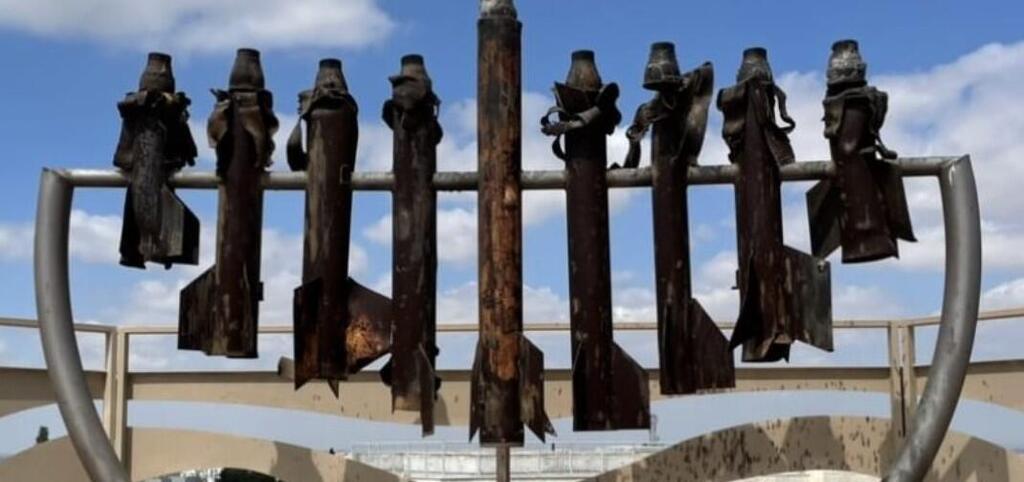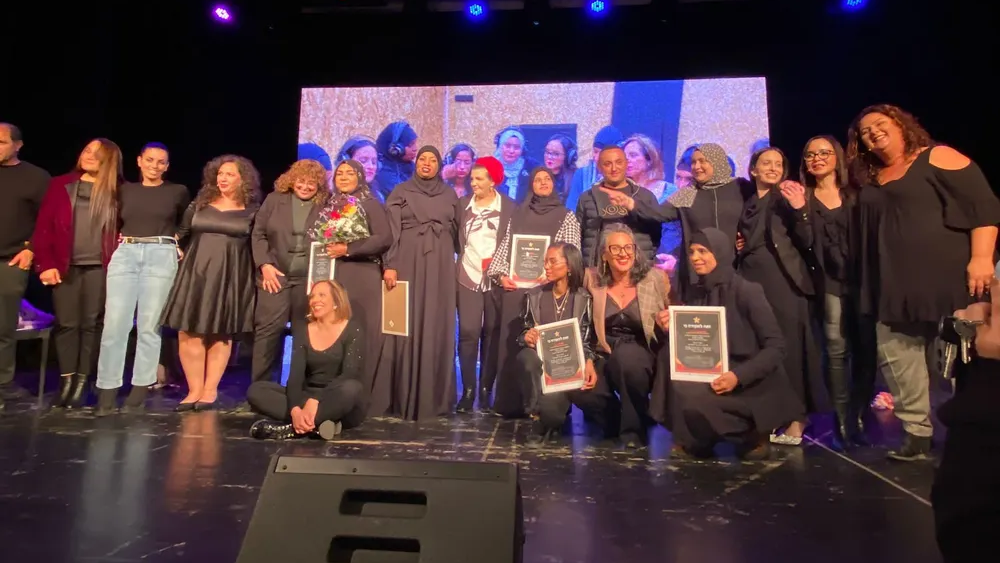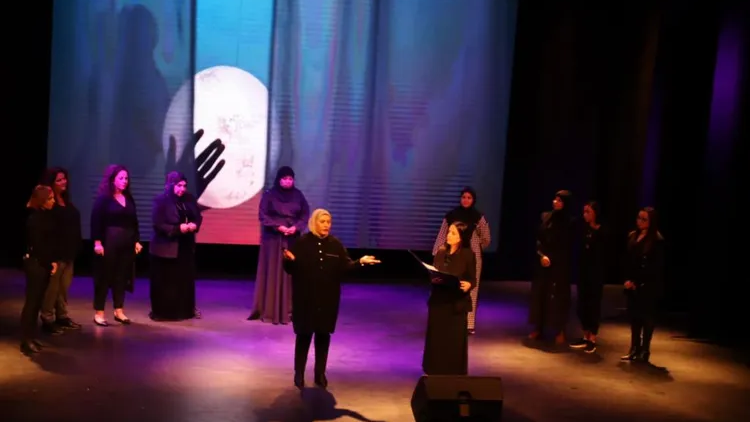"The Legend of the Woman Who Wanted" by Ilanit Swissa is a unique Israeli theater production based on the coexistence of 11 Arab and Jewish women from the southern cities of Sderot and Rahat.
On stage, they reveal their dreams while emphasizing the narrative of coexistence. This "collage of dreams," made from the personal stories of these women, shows an authentic side of Israeli society with the complexity that exists in the background.
"The idea of forming a common troupe between the two cities was born spontaneously one day in the mind of Limor Cohen, head of the community center in Sderot. I was sitting in the cafeteria of the cinema with some women from Rahat when she called me with the proposal. I immediately felt that I had to create something with these women. It was a really exciting coincidence, and we knew that this was a project that needed to be done," said Ilanit Swissa, the producer of the play.
Ilanit Swissa's production tells the story of a woman who doesn't know who she is or what she wants, but is a kind of spokesperson for all women.
The play, performed in Arabic and Hebrew, was staged in cooperation with the community centers of Rahat and Sderot. It was performed in both cities and received enormous support from the audience, who enthusiastically welcomed the initiative. The play was sold out, hosting a diverse audience of over 300 people each night.
"This show is completely new. We wanted to bring hearts together and unite two peoples through theater. It is the result of a long process that lasted a year, where the women met in Sderot and Rahat, learned about each other's culture, and were immersed in a world opposite to their own. It's just incredible to see the bond between them," said Limor Cohen, director of the Sderot community center.
4 View gallery


A view of the Bedouin city of Rahat, in Israel’s Negev Desert
(Photo: The Media Line)
According to Cohen, the theater is a great way for these women to show themselves as they really are, without artifice and without masks, and without hiding what they think, allowing them to reveal their inner strength.
For many months, the participants attended rehearsals in both Rahat and Sderot, to fight prejudice and get to know each other.
"It was not easy because some were afraid to come to Sderot and others were afraid to go to Rahat, and to overcome this obstacle it was necessary to have visionary women with strong character. Initially, there were 20 women, but only 11 were selected for the performance. The closeness between them generated a lot of joy and the knowledge of each other generated an immense benevolence", Ilanit told us.
"It was a stimulating experience. These women were exposed to personal stories that they had never heard, but discovered that they all had the same hopes, to live in peace and tranquility in our country," she added.
Poignant topics at the heart of current events
In recounting their dreams, the participants spoke implicitly but brazenly about violence against women and its place in society, as well as about their personal safety.
Many themes were addressed through their stories. One highlighted her relationship with her mother, describing a mystical connection while another dreamed of going on a culinary trip to Gaza. One of the Bedouin women from Rahat shared her dream of going to Morocco, even though she is still single at 28 and must be accompanied by a male family member.
Three other Jewish women, who suffer from post-traumatic stress due to the frequent rocket attacks on Sderot from Gaza, shared their experiences: one said that her house was hit twice by missiles, while another has to take anxiety medication to be able to lead a normal life. Finally, some chose to reinvent the stage space as a crime scene, thus denouncing the scourge of violence against women that plagues Israeli society.
4 View gallery


A sculpture made of missiles fired from Gaza on public display in Sderot
(Photo: The Media Line)
"Through this play, the women were able to freely reveal their personalities by offering the spectator a piece of their intimacy. We realize how strong these women are, who have a good head on their shoulders and continue to fight, despite the challenges they face on a daily basis. During the rehearsals, they also discovered that they have a lot in common," said Limor.
"I think this play is a kind of 'repairing the world,' we are trying to make the world a better place through our actions and this production is the best proof of that because it fulfills the most important goal in my eyes: bringing people together," said Limor.
Foad Zedna, the director of the Rahat Community Center, strongly agrees and hopes that the play can soon become a reality.
"This is an exciting project and this is how we will bring peace to all. Together we were able to concretize around an activity, a moment of shared life, and we knew how to show that it was possible", he concluded.



